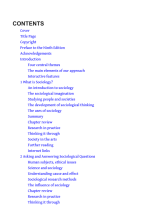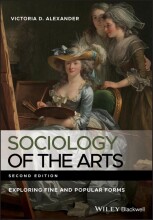Education - Theories of education and schooling - Education, cultural capital and the formation of 'habitus
6 important questions on Education - Theories of education and schooling - Education, cultural capital and the formation of 'habitus
Bordieu's theory on cultural reproduction focusses on three points. Can you name them?
- Capital.
- The field.
- Habitus.
Bourdieu discerns four types of capital.
Which types and what does each of them mean?
- 4 types of capital:
- Economic capital.
- Ownership of the means of production (Marx).
- Social capital.
- Membership/involvement in elite social networks or groups.
- Cultural capital.
- Increased knowledge, skills and degrees, gained within the family and through education.
- Symbolic capital.
- Prestige, status.
- Forms of capital can be exchanged.
- E.g., high cultural capital (degree) can be traded for economic capital (bigger house).
Bourdieu talks about the concept of the field in his theory about cultural reproduction.
What does this concept entail?
- The social and cultural spaces within which individuals and institutions compete for power, resources, and status
- Each field has its own rules that may not be transferred to other fields.
- E.g., in the academic field, cultural capital is the most important to succeed. On the other hand, in the field of production, economic capital is way more important.
- Higher grades + faster learning
- Never study anything twice
- 100% sure, 100% understanding
Bourdieu talks about the concept of habitus in his theory about the cultural reproduction.
What does this concept mean?
- It is all of the learned dispositions that are adopted by people from their social conditions.
- E.g., the lads of Birmingham all being antagonistic to school.
Bourdieu discerns 3 types of cultural capital. Which 3?
- Embodied state.
- What we carry around; our ways of thinking, speaking and moving.
- Objectified state.
- Material possessions of cultured capital.
- E.g., books, artworks, clothes.
- Institutionalized forms.
- Educational qualifications.
As Bernstein, Willis and Mac and Ghaill all saw, the education system plays a key role in the cultural reproduction of social inequalities.
Can you explain?
- You have an advantage at school if you already have acquired cultural capital in your family and through your social networks (social capital).
- I.e., because you speak similar as the teachers, have the right manners and perform better at exams.
- Because the education system is seen as equal for all and merely on the basis of talent, working-class children come to see themselves as intellectually inferior and blame themselves for their failure.
- Which is not necessarily correct.
The question on the page originate from the summary of the following study material:
- A unique study and practice tool
- Never study anything twice again
- Get the grades you hope for
- 100% sure, 100% understanding































